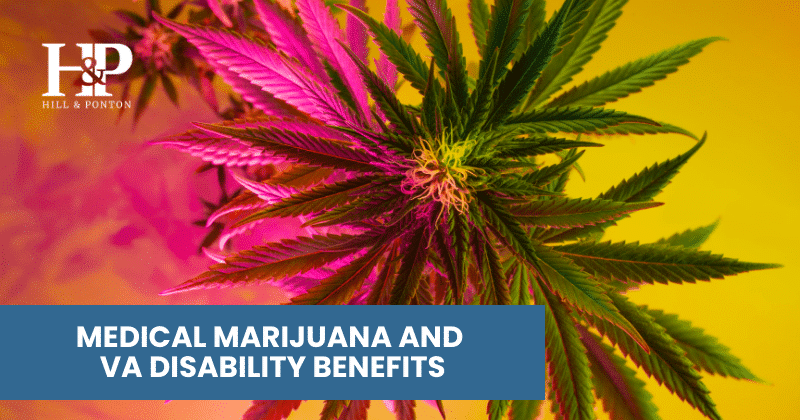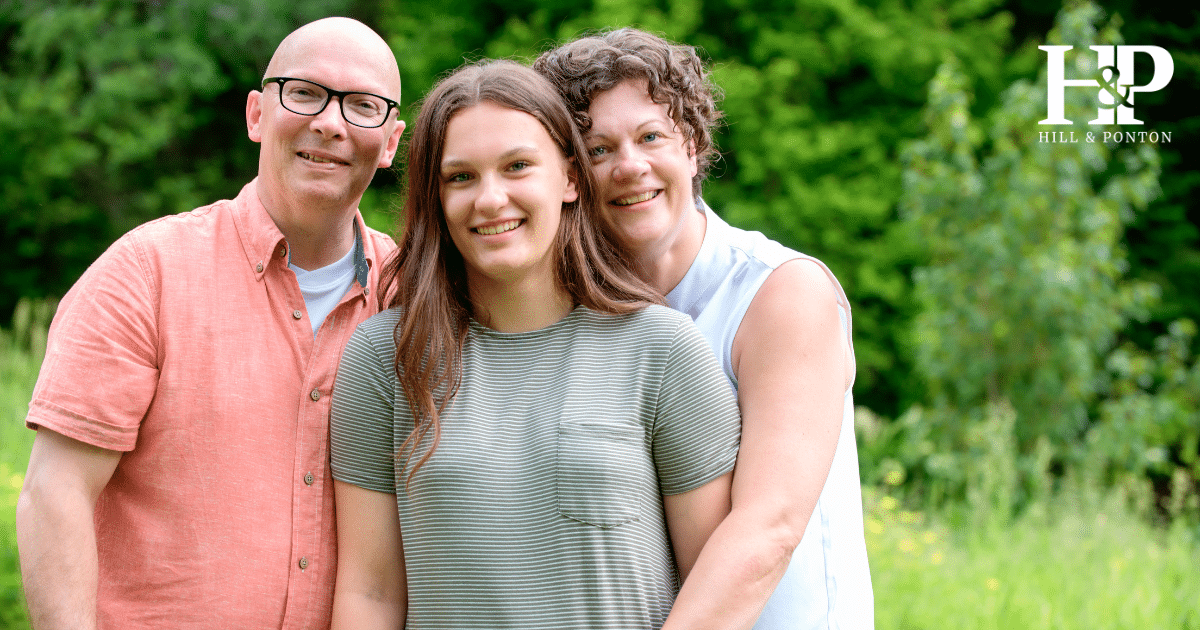As more Americans are coming around to the idea of dispensing medicinal cannabis more broadly across the country, so too must military veterans who are equally affected by ongoing changes.
This blog post will help you understand more about medical marijuana and its relation to VA disability benefits, and the benefits and disadvantages of it as a treatment option.
Medical cannabis has a particularly long history of use in managing various chronic ailments dating back hundreds of years.
However given the nature of controlled substances per federal law makers – such as those classified under Schedule I – accessing medical marijuana through official VA channels can be complicated for veterans.
For veterans already using or considering medicinal cannabis, it’s crucial that they understand how this choice impacts their disability benefits should they choose to continue its use.
It’s also important to remember that while there may be potential advantages in symptom relief, VA services don’t cover costs nor provide prescriptions for these treatments.
Medical marijuana treatment for veterans is not always readily available within the VA system, therefore they must explore other options for obtaining such care themselves.
Our blog post delves into the benefits of medical marijuana treatment for veterans including its effectiveness in treating specific conditions or symptoms.
We also discuss organizations that support access to alternative treatments such as this one so vets can be better informed about their options.
Curious about the connection between medical marijuana and VA disability benefits?
Keep reading as we investigate this complex issue and uncover its potential to make a positive difference in the lives of our honored veterans.
History of Medical Marijuana Usage
For centuries now people have been using medicinal marijuana as an alternative approach to managing pain, stress or other ailments that are treated by modern day pharmaceuticals.
It has proved effective time and time again with many opting for this natural plant based remedy.
Other civilizations such as Indian,Egyptian,and Chinese societies recognized the plant’s effectiveness in treating patients experiencing different physical ailments.
Their views on natural medicine stood out more in their times than it does today.
Western society only began embracing medicinal marijuana around the 19th century where physicians prescribed cannabis extracts and tinctures all thanks to the herbs therapeutic qualities.
However in recent years society became less tolerant of drug use which affected the legality of certain aspects of medicinal marijuana use but opinions regarding its potency remain divided.
Marijuana became subjected to increased scrutiny amidst evolving social and political sentiments.
The Marijuana Tax Act passed by the United States Government in 1937 marked a turning point by placing heavy taxes and strict regulations on cultivating, selling or using cannabis.
The Controlled Substances Act of 1970 listed Marijuana as a Schedule I controlled substance implying that it had no recognized medical value but high potential for abuse which made researching into its therapeutic potential difficult.
However public opinion and scientific research began challenging these assumptions.
Evidence of cannabis therapeutic benefits prompted some states during late decades to approve its usage medically.
Such actions sparked nationwide discussions about cannabis relevance in modern healthcare.
More states have followed suit over time by legalizing cannabis treatment options for various medical conditions including epilepsy, chronic pain, multiple sclerosis and PTSD.
Medical marijuana is gaining acceptance as a legitimate way to manage symptoms associated with service related conditions faced by many veterans.
Keeping up to date with the evolving legal framework surrounding medical marijuana use and VA disability benefits is necessary to make sound healthcare decisions.
Role of Medical Marijuana for Veterans and Their Healthcare
Veterans looking for alternative approaches to managing physical and/or mental health conditions stemming from military service – such as PTSD, TBIs, or chronic pain – could benefit significantly from medical cannabis use.
This treatment option provides relief while improving overall quality of life, offering potential benefits such as:
- Pain Management: Chronic pain can severely impact daily functioning and lead to further health complications. By lowering pain levels medical cannabis not only provides relief but also improves the ability to carry out everyday activities.
- PTSD Symptom Relief: Medical cannabis has shown potential as a solution for symptoms like anxiety or nightmares – both common issues for veterans suffering from PTSD or other similar conditions. Moreover it could help regulate sleep patterns and promote better quality rest overall.
- Reduced Inflammation: Reducing inflammation is another benefit that medical cannabis might offer to those who have experienced physical injuries during military operations. Joint pain caused by combat damage often worsens over time; however the anti-inflammatory properties of cannabis may provide relief to alleviate this condition’s impact on daily life.
- Mood Regulation: In addition to physical ailments many veterans face mental health struggles like depression or anxiety related to their service experience. Medical marijuana offers promise in regulating mood changes which could potentially provide relief for some individuals dealing with these issues.
Improved Quality of Life and Overall Well-Being
When looking at all these factors combined together- pain relief potentialized by improved sleep quality & decreased inflammation along with mood regulation capabilities- it’s clear that medical marijuana could offer much hope for those who have served in our military.
Many veterans are turning to medical marijuana as an alternative treatment option given its potential benefits for managing various symptoms associated with PTSD and other debilitating conditions.
Considering the use of medical marijuana? It’s essential to approach this decision by consulting with healthcare professionals first especially if you’re a veteran.
That means discussing its suitability for your individual needs, exploring potential interactions with existing medications and understanding how it fits into your overall treatment plan.
VA Disability Benefits and Medical Marijuana
Unfortunately VA disability benefits don’t cover the cost of medical marijuana because the Department of Veterans Affairs doesn’t recognize its validity as a form of medical treatment.
As such veterans aren’t able to get prescriptions from VA healthcare providers.
Federal Legality and Classification of Marijuana
While some states have legalized its use for medicinal purposes there is still some debate at the federal level over its legality and classification.
For veterans using VA channels to access medical marijuana this presents challenges that could impact their disability rating or compensation.
The debate over the use of marijuana for medicinal purposes has been ongoing in recent years.
Despite some states legalizing it for medicinal purposes under federal law cannabis is classified as a Schedule I controlled substance meaning that it has no recognized medical benefits and is believed to have a high potential for abuse.
For veterans considering using medical marijuana treatment options; they should bear in mind that while state laws may permit this usage there are still ramifications according to the existing body of federal law.
This includes facing legal consequences even if residing in states where cannabis is permitted.
Impact on Disability Rating and Compensation
As a veteran seeking healthcare from the Department of Veterans Affairs (VA) you should know that medical marijuana is not a prescribed or covered treatment option within their healthcare services.
It’s important to have open communication with your healthcare provider if you’re considering using medical marijuana while receiving care from the VA.
Mention any prescription medications you’re taking as well as some drugs may have contraindications or interactions with cannabis which could alter your overall treatment plan.
Before deciding whether cannabis is right for your symptom relief it’s wise to educate yourself on its possible risks and side effects.
Marijuana doesn’t directly impact disability ratings and compensation; these are determined primarily based on severities and impacts connected with conditions resulting from military service irrespective of what treatment methods were employed.
The VA evaluates disabilities based on evidence presented by doctors regarding how disabling they are rather than focusing on specific medications or treatments used.
That being said, veterans are advised to discuss any planned use of medicinal cannabis with healthcare providers before implementation since other aspects of their care could be affected.
As a veteran using or considering medical marijuana its important to stay informed about key factors that could impact your healthcare and VA benefits.
That includes understanding how marijuana use can affect your prescription medications and overall care as well as staying up to date on legal considerations specific to your state.
To start with, every state has different laws regarding medical marijuana use – some allow it freely while others are more restrictive or haven’t legalized it at all.
To ensure you know where you stand legally consult DISAs interactive map of nationwide cannabis laws. This resource provides accurate information so that veterans can confidently understand their rights and protections.
Important Information for Veterans
Potential Risks and Side Effects
While medical marijuana has shown promise in managing certain symptoms, it’s important to be aware of potential risks and side effects.
Research studies have explored various aspects of medical marijuana use, including its effects on medical conditions, potential risks, and side effects.
One study published in the Journal of the American Medical Association (JAMA) found that medical marijuana use may benefit chronic pain and spasticity.
Still, it cautioned about potential adverse effects such as cognitive impairment and increased risk of motor vehicle accidents.
Another study published in the Journal of Clinical Medicine examined the potential adverse effects of medical marijuana use on mental health.
The study found a possible association between marijuana use and an increased risk of developing psychiatric disorders, particularly among heavy users.
It’s crucial to familiarize yourself with the latest research studies and consult with healthcare professionals to make informed decisions regarding your healthcare and the use of medical marijuana.
Understanding the potential risks and side effects associated with medical marijuana use will enable you to weigh the benefits against the possible drawbacks and make the best choices for your situation.
While VA disability benefits may not cover medical marijuana, veterans must explore alternative treatment options that align with their needs and preferences.
By working closely with healthcare professionals and considering all available options, veterans can make informed decisions about their healthcare while being mindful of the legal and regulatory considerations surrounding medical marijuana.
Organizations Advocating for Medical Marijuana
Several organizations are dedicated to advocating for the use of medical marijuana and supporting veterans’ access to this alternative form of treatment.
These organizations are crucial in promoting awareness, conducting research, and lobbying for policy changes.
Here are a few notable organizations advocating for medical marijuana:
1. Veterans Cannabis Project (VCP)
The Veterans Cannabis Project is a nonprofit organization that focuses on improving the quality of life for veterans through increased access to medical marijuana.
The VCP engages in education, research, and advocacy to address the needs of veterans seeking alternative treatment options.
They advocate for federal policy reforms to facilitate safe and legal access to medical cannabis for veterans, emphasizing its potential benefits in managing service-related conditions.
2. Weed for Warriors Project (WFWP)
The Weed for Warriors Project aims to provide veterans with access to medical marijuana while also supporting their overall well-being.
They advocate for veterans’ rights to choose medical marijuana as a viable treatment option, particularly for chronic pain and post-traumatic stress disorder (PTSD).
WFWP raises awareness, provides education, and offers a support network for veterans seeking alternative therapies.
3. Americans for Safe Access (ASA)
Americans for Safe Access is a national nonprofit organization advocating for safe and legal access to medical cannabis for patients, including veterans.
ASA ensures that veterans and other patients can use medical marijuana without facing legal barriers.
They provide resources, support research initiatives, and engage in advocacy efforts to protect patients’ rights and promote the benefits of medical cannabis.
Benefits of Medical Marijuana for Veterans
Medical marijuana has shown promise in providing relief for various conditions and symptoms commonly experienced by veterans.
While individual responses may vary, research studies and anecdotal evidence have highlighted its potential efficacy in managing certain health challenges.
It is important to note that individualized treatment plans and guidance from medical professionals are crucial in determining the suitability and effectiveness of medical marijuana for each veteran’s unique circumstances.
Here are some key points to consider:
1. Managing Service-Related Conditions
Medical marijuana has demonstrated potential benefits in managing symptoms associated with service-related conditions.
For example, it may help alleviate chronic pain, which is a common issue among veterans.
Research studies have shown that cannabinoids found in marijuana may have analgesic properties, providing relief for individuals experiencing pain due to injuries or conditions such as musculoskeletal disorders.
Additionally, medical marijuana has shown promise in mitigating symptoms of post-traumatic stress disorder (PTSD).
Studies suggest that cannabinoids can modulate the endocannabinoid system, which plays a role in stress regulation.
Veterans dealing with PTSD may find relief from anxiety, insomnia, and intrusive thoughts through the use of medical marijuana, although further research is still needed to fully understand its efficacy in this area.
2. Supporting Research and Anecdotal Evidence
Research studies have contributed to the growing body of evidence supporting the potential benefits of medical marijuana for veterans.
For instance, a study published in The Journal of Alternative and Complementary Medicine found that medical cannabis provided significant relief for veterans with chronic pain, reducing their reliance on other medications.
Anecdotal evidence from veterans who have incorporated medical marijuana into their treatment plans also underscores its potential benefits.
Many veterans have reported improved quality of life, better sleep, and enhanced mood through the use of medical marijuana.
While anecdotal evidence cannot replace rigorous scientific studies, these personal experiences highlight the potential positive impact of medical marijuana on veterans’ well-being.
3. Individualized Treatment Plans and Medical Professional Guidance
It is crucial to emphasize that medical marijuana is not a one-size-fits-all solution.
Each veteran’s health condition and circumstances are unique, and treatment plans should be tailored accordingly.
Consulting with healthcare professionals, including physicians with knowledge of medical marijuana, is vital in determining the suitability and appropriate dosage of medical marijuana for individual needs.
Medical professionals can provide valuable guidance, assess potential risks and benefits, and help monitor the effectiveness of medical marijuana in managing symptoms.
They can also offer insights into potential drug interactions and any potential impacts on VA healthcare or disability benefits.
It is important for veterans to work collaboratively with their healthcare providers to develop comprehensive treatment plans that integrate medical marijuana, if deemed appropriate and legal in their state.
Open and honest communication with healthcare professionals is essential to ensure optimal care and maximize the potential benefits of medical marijuana.
In conclusion, medical marijuana holds promise in providing relief for various conditions and symptoms commonly experienced by veterans.
While research studies and anecdotal evidence support its potential efficacy, individualized treatment plans and guidance from medical professionals are crucial.
As a veteran considering medical marijuana as part of your treatment, it is essential to engage in open and informed discussions with your healthcare providers.
Remember, medical marijuana is not covered by VA disability benefits, and its legal status may vary across states.
Staying informed about the latest research, consulting with healthcare professionals, and adhering to state-specific regulations will help veterans make informed decisions regarding their healthcare.
By exploring all available treatment options and working closely with medical professionals, veterans can optimize their well-being and quality of life.
If you have further questions or seek additional information, reach out to reputable organizations such as the Veterans Cannabis Project, Weed for Warriors Project, or Americans for Safe Access, as mentioned earlier in this blog post.
Remember, your health and well-being are of utmost importance, and finding the right treatment approach that works for you is a journey that requires careful consideration and collaboration with medical professionals.




